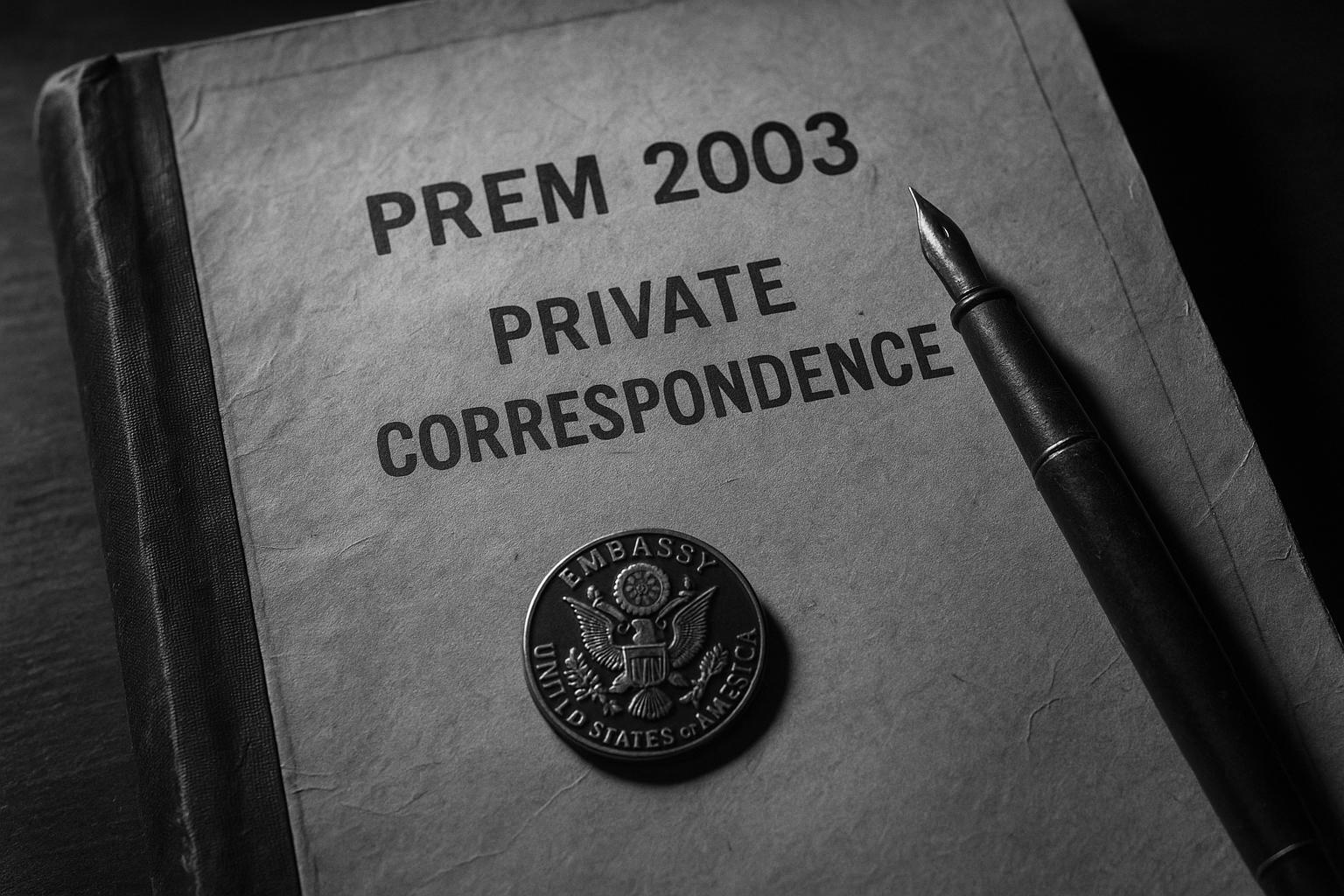Downing Street files released this summer contain an arresting private rebuke of Tony Blair’s approach to Sinn Féin that, if accurate, comes from one of the most prominent US figures involved in the Northern Ireland peace process. The papers reproduce a May 2003 letter from historian Alistair Horne to Jonathan Powell, Blair’s then chief of staff, in which Jean Kennedy Smith — the former US ambassador to Ireland and a member of the Kennedy family — is said to have urged Mr Blair to “stop ‘pussyfooting around’ with Gerry Adams” and to tell the US Congress “that Americans should stop sending any money to the IRA”. According to reporting based on the files, the comments were made in private conversations and recorded by British officials. (The files themselves have been made public via government releases at The National Archives.)
The source for the allegation is a historical note reproduced among Prime Minister’s Office papers: Horne’s May 2003 letter relays remarks he attributed to Kennedy Smith. Journalists who have examined the tranche say the passage sits alongside other contemporaneous civil‑service notes and briefing papers that record the frustrations and diplomatic back‑and‑forth of the early 2000s. The National Archives’ programme of opening PREM and related files has allowed researchers to place such private exchanges in the wider chronicle of how London managed relationships with Washington and with nationalist figures during a fraught period.
The apparent sharpness of Kennedy Smith’s private remarks is striking because of her public reputation and her active role in fostering dialogue earlier in the 1990s. The John F. Kennedy Library’s profile of Kennedy Smith and contemporaneous accounts recall her decisive intervention in persuading the Clinton administration to grant a US visa to Gerry Adams in 1994 — a move many credit with nudging republicans towards ceasefire and talks. Obituaries and retrospectives have since balanced praise for her peacemaking efforts with acknowledgement that some of her decisions proved controversial in Britain, where officials worried the visa risked political fallout.
Those tensions help explain why the alleged post‑9/11 exasperation — at a moment when questions about decommissioning and IRA paramilitary activity remained politically explosive — would have mattered to Whitehall. The newly published papers sit against a background of sustained frustration among some British officials about the pace and credibility of decommissioning, and show how private diplomatic conversations hardened after the attacks of September 11, 2001. Reporting on the files notes that, beyond Kennedy Smith, at least two US diplomats recorded in the papers expressed private dismay at what they perceived as a weak public posture from Mr Blair towards Sinn Féin and republican leaders.
The records also revisit an older source of Anglo‑American strain. The 1994 visa itself provoked friction between Whitehall and Washington — an episode that is well documented in contemporaneous diplomatic correspondence and summarised in government papers now open to researchers. British ministers and officials were concerned about the domestic political consequences of high‑profile US engagement with Sinn Féin even as US figures and some in the Kennedy circle urged engagement as a way of bringing republicans into the political process.
It is important to underline the distinction between what the files allege and what was publicly said at the time. The phrase attributed to Kennedy Smith appears in a private recollection relayed by a third party and reproduced in official papers; it is not a public statement by her. Coverage of the release has therefore sought to balance the hardline language recorded in the documents with the wider historical record that remembers Kennedy Smith as a vocal advocate for engagement — a posture credited by many with helping to open avenues for peace even as it attracted criticism from others.
Taken together, the newly opened files deepen our understanding of how personal ties, political instincts and the shock of global events intersected with the painstaking mechanics of peacemaking. As the National Archives continues to digitise and publish Prime Minister’s Office and Cabinet material from the Blair era, historians and journalists say further context will emerge that could either corroborate or complicate the picture now being pieced together from these private notes and letters.
📌 Reference Map:
##Reference Map:
- Paragraph 1 – [1], [2], [6]
- Paragraph 2 – [2], [1], [6]
- Paragraph 3 – [4], [5], [3]
- Paragraph 4 – [1], [2], [7]
- Paragraph 5 – [3]
- Paragraph 6 – [2], [5], [4]
- Paragraph 7 – [6], [1], [7]
Source: Noah Wire Services
